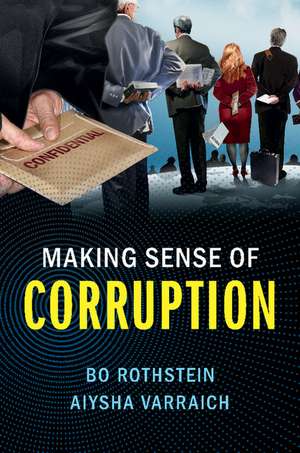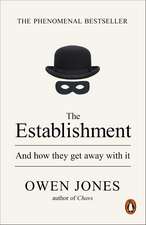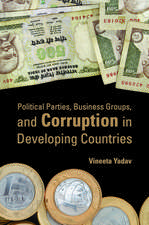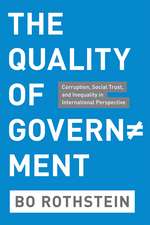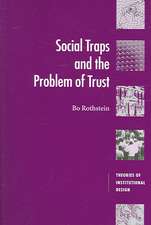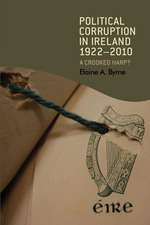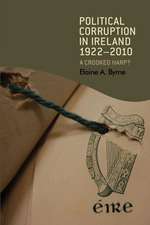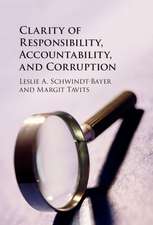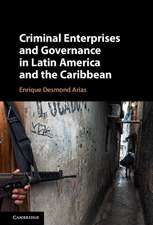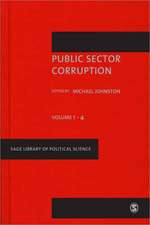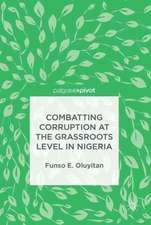Making Sense of Corruption
Autor Bo Rothstein, Aiysha Varraichen Limba Engleză Paperback – 26 feb 2017
| Toate formatele și edițiile | Preț | Express |
|---|---|---|
| Paperback (1) | 176.51 lei 6-8 săpt. | |
| Cambridge University Press – 26 feb 2017 | 176.51 lei 6-8 săpt. | |
| Hardback (1) | 461.99 lei 6-8 săpt. | |
| Cambridge University Press – 8 mar 2017 | 461.99 lei 6-8 săpt. |
Preț: 176.51 lei
Nou
33.78€ • 35.14$ • 27.89£
Carte tipărită la comandă
Livrare economică 15-29 aprilie
Specificații
ISBN-10: 1316615278
Pagini: 184
Ilustrații: 3 b/w illus. 5 tables
Dimensiuni: 155 x 232 x 15 mm
Greutate: 0.32 kg
Editura: Cambridge University Press
Colecția Cambridge University Press
Locul publicării:Cambridge, United Kingdom
Cuprins
Recenzii
'Defining the core issue as one of the quality of government and the idea that a non-corrupt government is 'based on the principle of impartiality in the exercise of public power,' [Rothstein and Varraich] relate the theory of corruption to real world problems. This is a small book, dense in its coverage of issues of philosophy, sociology, and political science, but it will probably cause anyone who has glibly used the term to have second thoughts and, hopefully, rethink their core assumptions.' E. V. Schneier, CHOICE
Descriere
Corruption is a serious threat to prosperity, democracy and human well-being, with mounting empirical evidence highlighting its detrimental effects on society. Yet defining this threat has resulted in profound disagreement, producing a multidimensional concept. Tackling this important and provocative topic, the authors provide an accessible and systematic analysis of how our understanding of corruption has evolved.
They identify gaps in the research and make connections between related concepts such as clientelism, patronage, patrimonialism, particularism and state capture. A fundamental issue discussed is how the opposite of corruption should be defined. By arguing for the possibility of a universal understanding of corruption, and specifically what corruption is not, an innovative solution to this problem is presented.
This book provides an accessible overview of corruption, allowing scholars and students alike to see the far reaching place it has within academic research.
